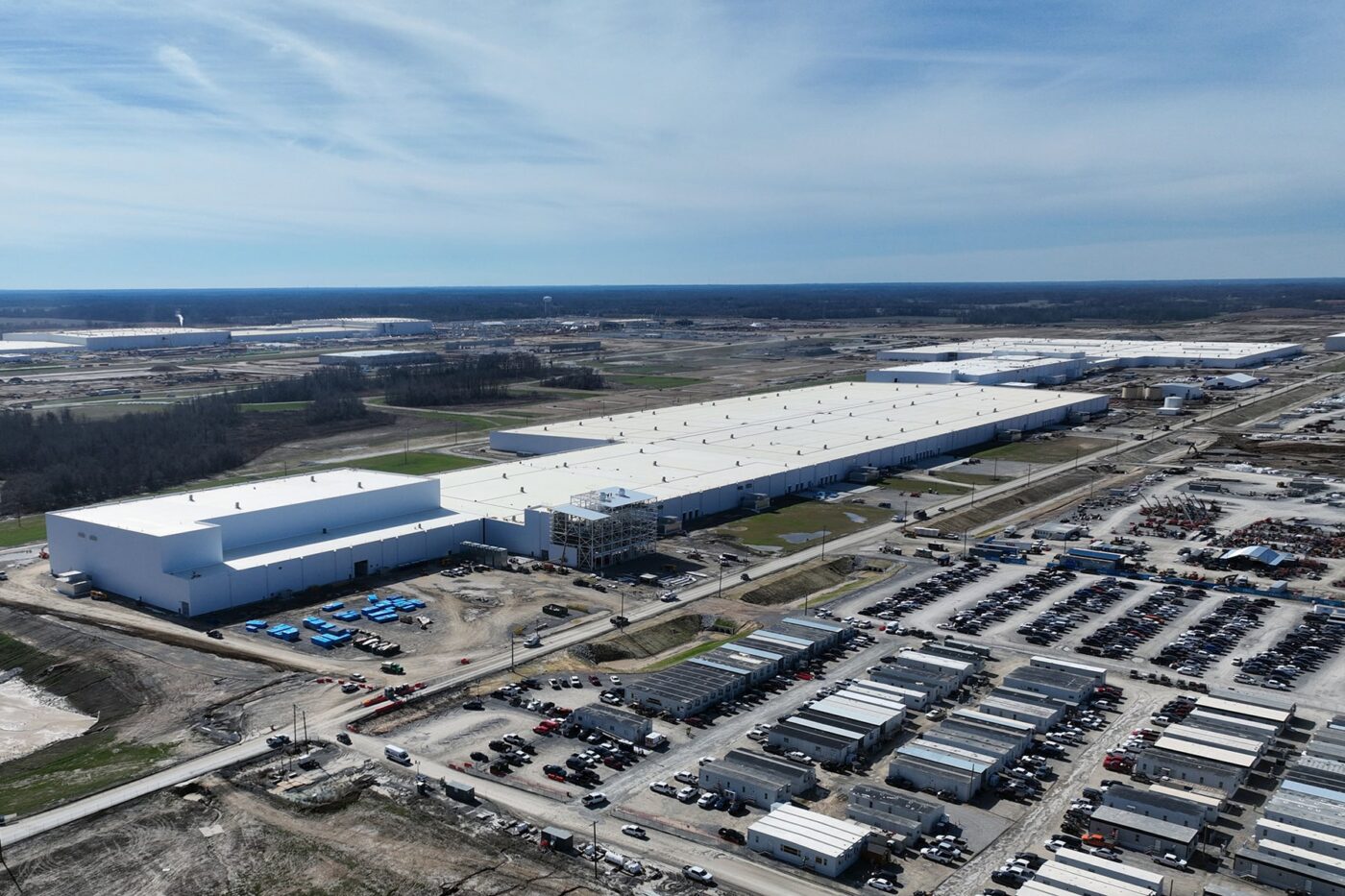Ford pushes back production start of two next-generation EVs
Given its loss-making EV business, Ford announced in February that it would only launch the next generation of its electric vehicles on the market if they could be profitable. And apparently, that won’t be the case next year. That is why Ford is postponing the production start of two electric vehicles.
At the BlueOval City plant in the US state of Tennessee, Ford’s new generation of electric pickups will not go into series production next year but in 2026. In spring 2023, it was still said that production of the electric pickup developed under the codename T3 would begin in 2025 and that up to 500,000 electric pickups would be produced at the plant each year. Ford has yet to reveal any technical data for the T3.
Ford is also delaying the debut of a new large electric SUV that will roll off the production line in Oakville, Canada, by as much as two years. The carmaker speculates that the consumer market for three-row electric cars needs “additional time” to develop and won’t launch until 2027. Moreover, Ford says that the electric SUV can then benefit from “emerging battery technology.”
Last year, Ford announced that it would invest 1.8 billion Canadian dollars to transform the Oakville Assembly Complex in Ontario into a Canadian centre for the production of electric vehicles. The site will be renamed the Oakville Electric Vehicle Complex. However, the company has not mentioned a targeted production capacity for either the electric vehicles and their battery packs at Oakville nor were the specific models named.
“As the No. 2 EV brand in the US for the past two years, we are committed to scaling a profitable EV business, using capital wisely and bringing to market the right gas, hybrid and fully electric vehicles at the right time,” says Ford CEO Jim Farley. At this time, the right mix includes more hybrids, which is why the carmaker will expand its range of hybrid vehicles. Farley has already announced this several times. Now, he announced a specific target: “By the end of the decade, the company expects to offer hybrid powertrains across its entire Ford Blue lineup in North America.” The US Environmental Protection Agency recently provided the leeway for this strategy with relaxed CO2 fleet emission requirements, which will not be as strict as previously announced from 2027 onwards.
The background to Ford’s change in strategy is the poor figures for its Model e electric car division. In 2023, the division’s losses amounted to 4.7 billion dollars. At around 1.6 billion US dollars, the last three months of the year saw the biggest downturn, meaning that the trend seems to be pointing downwards. This is partly caused by stagnating electric vehicle sales as well as a highly competitive pricing environment and strategic investments in developing next-generation electric vehicles.
At the same time, Ford also mentions that electric vehicle sales increased 86 per cent in the first quarter of 2024 compared to the same period last year. But that is clearly not enough for the carmaker to focus more on battery-electric vehicles at this point.
The US carmaker had to adapt its strategy given the lower demand and the price war instigated by Tesla, CEO Jim Farley said in a telephone call with analysts in February on the occasion of the published annual figures. The company now wants to focus more on large electric vehicles such as trucks and vans and low-cost, small electric cars. A new electric platform is planned for the latter, as well as the above-mentioned focus on hybrids, which Farley has said could increase by 40% next year.
Ford announced significant adjustments to its EV roadmap in its Q3/2024 annual report. At the time, Ford said it would postpone some of its planned billion-euro investments in new production capacities for electric vehicles and batteries. The first concrete consequence has already been revealed: Ford will implement its LFP battery cell factory in the USA on a much smaller scale than initially designed. The US company is also shelving plans for a battery plant for electric commercial vehicles planned with LG Energy Solution and Koç in Turkey. The cost-cutting measures also affect a planned second battery factory on a new campus in Kentucky.
At the end of October, Ford cited the billion-euro losses in the Model e electric division and weakening demand as the reason. “Many North American customers who are interested in purchasing an electric vehicle are not willing to pay a premium over gasoline or hybrid vehicles, which is severely depressing the price and profitability of electric vehicles,” the manufacturer said a few weeks ago.





0 Comments